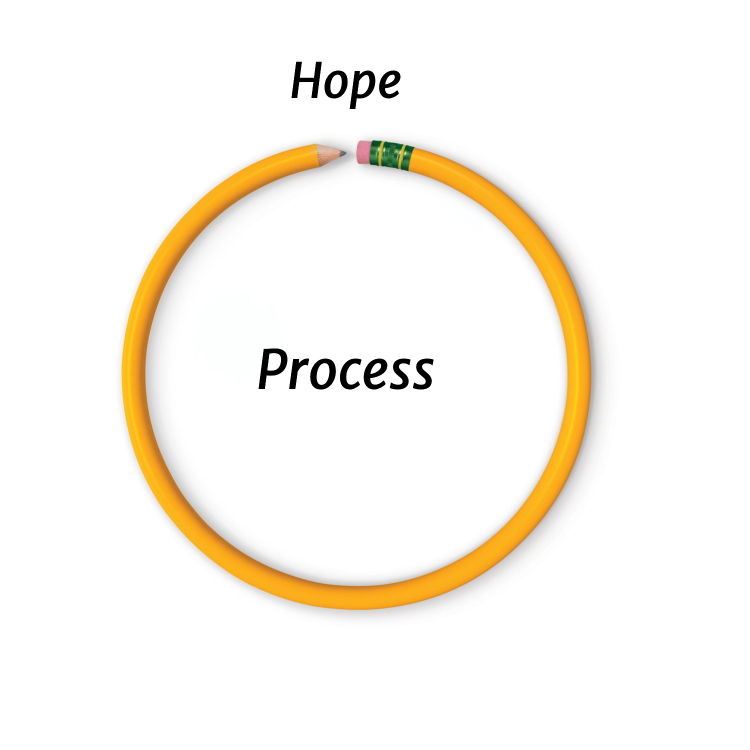
Watching the presidential inauguration last week, I was struck by the comfort I found in the ceremony itself.
The event moved forward through a predictable process rooted in the past. People sang, gave speeches, and administered oaths in a predetermined order. Then the work of the new administration started with process as well, as Vice President Harris swore in senators and President Biden signed executive orders.
While many people, myself among them, greet the new administration with a sense of hope, the hard days ahead will define this term.
Hope and process are necessary companions.
Whenever we start anything major, we’re always optimistic for a great outcome—whether it’s a job, a new relationship, or a writing project. But the success of these longer endeavors depends on our actions.
Without action, hope is an empty promise.
Hope and promise reinforce each other
Hope gets us started. It may galvanize us into taking the first steps. But hope is like a fast-twitch muscle, easily overwhelmed with fatigue. It rarely carries us all the way to the end we envision when the path ahead of us is long.
That’s where process comes in—as a steadfast foundation for action, even when hope falters.
When hope fades, the key is to cling doggedly on the process, like the tired hiker focused on how many steps remain to the next landmark, then the next one.

Process keeps us moving forward when our stores of hope are depleted. It gets us where we want to go.
Process in writing
Maybe you want to write a blog consistently, or to create a collection of short stories, or perhaps write a book. These are major writing projects. You may start with high hopes. But I guarantee there will be a day when it seems like the road ahead is too long, or you simply don’t feel the pull that day, or life distracts you.
Nearly every large project reaches this point.
Process is your steady companion, slow but reliable. Show up every day, even on the days you don’t feel like it.
When you commit to the process, something remarkable usually happens: you look around and see how far you’ve come. You’ve written three months of weekly blogs. You’ve written 10,000 or 20,000 words of your book.
The progress gives you a new infusion of hope, and fresh incentive to forge ahead.

That’s why I harp on about understanding your writing process, and creating a pattern for when and how you work, whether or not you feel inspired.
Amanda Gorman took the world by storm with her recitation at the inauguration. I’m a new fan. Here’s what Gorman says about creativity (from Michelle Woo’s article):
Rarely does a writer say “I’m gonna have a great idea” and it comes. Instead you have to wait lovingly, preparing a place for inspiration to strike in your life. It’s like tending soil, though you might not have seeds yet, so that when they do arrive, they can thrive.
Amanda Gorman
To tend the soil as a writer, show up and write. Hope for inspiration, but stick to your process. Do the work.
Tend your writing process with hope for great things.
Related content
For a deep dive into the process, see my book The Writer’s Process.
Read the blog post Fear Freezes, Hope Motivates